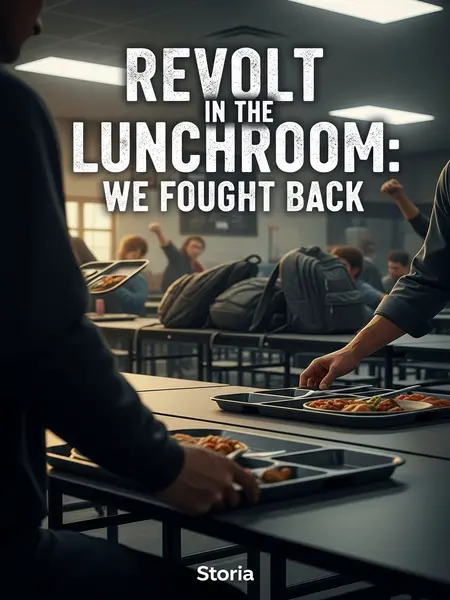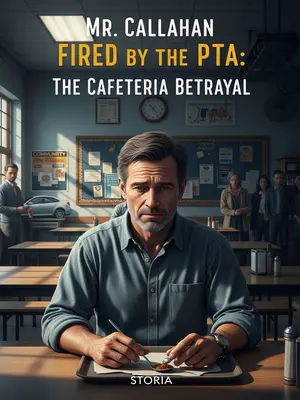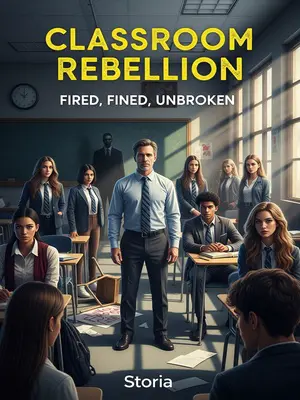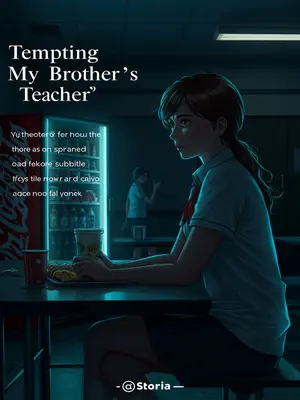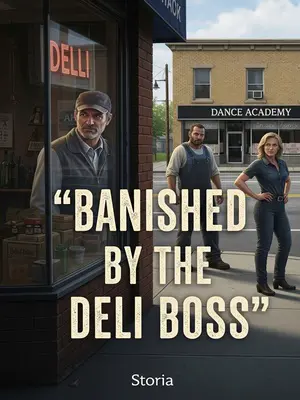Chapter 4: A Taste of Kindness
So the teacher took us to his home.
He glanced around to make sure no one saw us, then waved us toward the back gate. "Come on. I’ll take care of you," he said. I’d never felt more grateful in my life.
His wife, Mrs. Sanders, hadn’t gone to bed yet and was making him a bowl of noodles for a midnight snack.
The Sanders’ kitchen was warm and bright, a radio humming softly in the corner. Mrs. Sanders smiled at us, not even surprised to see three extra teens stumble in behind her husband.
Mr. Sanders motioned for us to eat.
He pushed the steaming bowl across the table, eyes twinkling. “Go ahead, boys. Dig in.”
No joke, one bowl of noodles was gone in three seconds flat.
We didn’t even use forks—just slurped straight from the bowl, broth dripping down our chins. I could have sworn it was the best thing I’d ever tasted.
The noodles slid in, the boiling soup shot straight down my throat.
My tongue burned, but I didn’t care. The heat hit my stomach like a hug from inside.
My throat didn’t even have time to react, my stomach protested at being scalded, sent it back up to my mouth, and finally my brain gave the ultimate order and forced me to swallow it down.
I coughed, wiped my mouth with my sleeve, and grinned at my friends. We all looked half-crazy, but happy for the first time all week.
Mr. Sanders had just taken off his coat and told us to eat slower.
He hung his jacket on the back of a chair and shook his head, but he was smiling. “Slow down, you’re gonna choke!”
Before he finished his sentence, we were already done eating.
Our bowls were empty, not even a drop of broth left. Mrs. Sanders laughed and clapped her hands.
Three pairs of eyes stared eagerly at Mrs. Sanders.
We looked up, wide-eyed and hopeful, like a litter of puppies begging for scraps.
She burst out laughing and went into the kitchen to turn on the stove.
She winked at Mr. Sanders and set to work. The kitchen filled with the smell of garlic and onions sizzling.
Then she brought out another dish, and we devoured it.
This time, it was fried rice with leftover veggies—better than any five-star restaurant to us. We inhaled it.
Forks and bowls clattered, plates licked clean—no need to wash.
We scraped every grain of rice. I almost felt bad for the dishwasher, but there was nothing left.
Halfway through, Mr. Sanders rolled up his sleeves and went into the kitchen, too.
He grabbed a pan and started making scrambled eggs, humming a little tune. The Sanderses made it look easy, like feeding a bunch of hungry kids was no big deal.
In the end, the three of us ate until our bellies were round.
We slumped back in our chairs, sighing in relief, finally full. My whole body felt lighter.
Mr. Sanders wiped his sweat and panted, “You three aren’t so poor you can’t afford to eat, are you? Where did your lunch money go? Tell the truth.”
He leaned against the counter, looking us up and down with real concern. “Be honest, boys. You in some kind of trouble?”
I waved my hands and slapped my meal card on the table—not a penny spent.
I pushed the card toward him, showing the unused balance. "It’s not money, sir. It’s the cafeteria food."
It’s really not that we’re picky, the cafeteria food just isn’t fit for people.
I told him the truth, my voice shaking a little. “It’s so bad, Mr. Sanders. I wouldn’t feed it to my dog.”
Mystery meat stir-fried with rotten peppers, spoiled cabbage stewed with mushy noodles, even the rice is half-cooked.
I listed off the worst offenders—rotten veggies, gray noodles, rice so hard it could chip a tooth. Mr. Sanders’s frown deepened with every word.
Mr. Sanders frowned as he listened.
He rubbed his chin, silent for a long moment. You could tell he was really thinking it over.
He said he knew the cafeteria was bad, but didn’t realize it was this bad.
He sighed, muttering that he’d thought the complaints were just exaggerations. Clearly, he’d been wrong.
I said, this time we were already lucky. Other students only get to eat real food once a month, when they go home.
I told him some kids only eat well on visiting weekends, and even then, they have to stuff themselves to last.
Mr. Sanders shook his head and sighed.
He looked tired, but determined. “This isn’t right,” he said quietly.
Before we left, Mrs. Sanders packed some food for us and told us to be careful, not to let the security guards or dorm managers find out.
She handed us a Tupperware full of leftovers, wrapped in foil. “Be safe, boys. And try not to get caught, okay?” she said, patting my shoulder.
I was so touched I almost cried.
Walking back through the shadows, I wiped my eyes before anyone could see. No one had ever looked out for us like that before.
